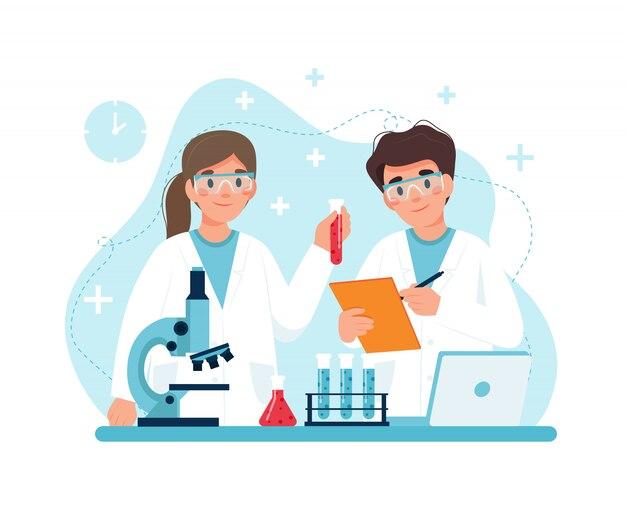Are you curious about the difference between nursing and medical diagnosis? This blog is an excellent resource for learning the distinctions between these two medical terms. Stay tuned and read our blog for better clarity.
Table of Contents

Have a deep look into both Distinctions-
Medical diagnosis and nursing diagnosis are two distinct procedures within the healthcare industry, each having a different function and being performed by a different group of healthcare experts. The following is an explanation of the distinction between the two:
Medical Diagnosis:
Definition and Meaning- The identification of a specific illness or medical condition based on the patient’s signs, symptoms, medical history, and the results of medical tests and treatments is referred to as a medical diagnosis.
Performed by: Medical physicians, such as general practitioners, specialists (e.g., cardiologists, dermatologists), and other healthcare providers with the authority to diagnose ailments, and perform the procedure.
The goal of medical diagnosis: The goal of medical diagnosis is to determine the underlying cause and nature of a patient’s health problem. Its goal is to categorize the sickness or condition using existing medical knowledge and criteria.
Medical Diagnosis examples: include respiratory infections, Type 2 diabetes, hypertension, appendicitis, and breast cancer. These diagnoses are often associated with specific illnesses or medical problems that necessitate medical care.

Nursing diagnosis:
Definition and Meaning: A clinical assessment made by nurse practitioners (RNs) on the way the patient reacts to a present or probable health problem is referred to as a nursing diagnosis. It depends on an evaluation of the patient’s psychological, social, physical, and environmental aspects.
Performed by: Registered nurses and advanced practice nurses, including nurse practitioners and clinical nurse specialists, perform the work. They provide a thorough examination of the patient and utilize their skills to develop nursing diagnoses.
The goal of nursing diagnosis: The goal of nursing diagnosis is to identify the patient’s existing or probable health issues and their influence on the patient’s well-being. It assists nurses in developing appropriate nursing care plans and actions to enhance patient health and address individual patient requirements.
Nursing Diagnosis examples: Nursing diagnoses include poor mobility, inefficient coping, fall risk, and impaired cognition. These diagnoses are based on the patient’s reaction to the sickness or condition and dictate nurse actions and care.
In basic terms, Medical diagnosis deals with determining the presence of particular diseases or medical conditions, whereas Nursing diagnosis is concerned with analyzing the patient’s reaction to health concerns and creating care plans to meet their requirements. Both procedures are critical in delivering complete healthcare and necessitate collaboration between medical physicians and registered nurses to provide holistic patient care.
Current Medical Diagnosis and Treatment 2023
It is the most solid and accessible tool for studying diagnostics and treatments in the medical health field. It focuses on practical, bedside clinical issues. It offers a thorough examination of key fields such as malignancies, neurology, psychiatry, and urology.
You will discover information on inpatient and outpatient care as well as diagnostic criteria for the majority of illnesses.
This book and PDF serve as an in-depth guide to medicine and health care. It has 40 chapters on various fields of medicine. It has been authored by medical professionals and specialists.

Frequently Asked Questions (FAQs)
1: What is the primary difference between medical and nursing diagnoses?
A: The main distinction lies in their scope and focus. Nursing diagnosis concentrates on identifying the patient’s health problems and creating a plan of care, whereas medical diagnosis focuses on identifying specific diseases or medical conditions.
2: Are nursing diagnoses less important than medical diagnoses?
A: No, both nursing and medical diagnoses are equally important in patient care. They complement each other and contribute to a comprehensive understanding of the patient’s health status and needs.
3: Can a nurse make a medical diagnosis?
A: No, nurses are not authorized to make medical diagnoses. They can, however, make nursing diagnoses based on their assessment and collaborate with physicians to contribute to the overall diagnostic process.
4: How are nursing diagnoses determined?
A: Nursing diagnoses are established through a systematic assessment of the patient, considering their symptoms, medical history, and physical and psychological evaluation. Nurses use standardized nursing language and diagnostic frameworks to identify patterns and formulate diagnoses.
5: Do nursing diagnoses change over time?
A: Yes, nursing diagnoses can evolve as the patient’s health condition changes or improves. Nurses regularly reassess the patient’s status and modify the nursing diagnoses and care plans accordingly.
6: Are nursing diagnoses only applicable in hospital settings?
A: No, nursing diagnoses are relevant in various healthcare settings, including hospitals, clinics, long-term care facilities, and even home healthcare. They are adaptable to different contexts and patient populations.
